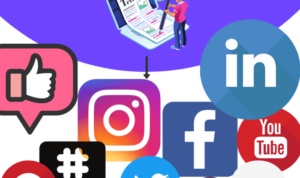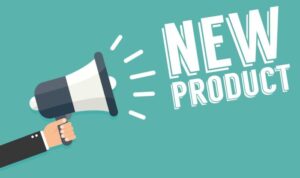Using Facebook for E-commerce sets the stage for this enthralling narrative, offering readers a glimpse into a story that is rich in detail with American high school hip style and brimming with originality from the outset.
Get ready to dive into the world of online business through the lens of the social media giant, Facebook, where e-commerce dreams come true with just a click.
Benefits of Using Facebook for E-commerce
Facebook is not just for chatting with your friends or sharing memes anymore. It has become a powerful tool for businesses looking to sell their products online. Let’s dive into how Facebook can benefit e-commerce ventures.
Reaching a Wider Audience
- Facebook allows businesses to reach a global audience with over 2.7 billion active users worldwide.
- By creating a business page, companies can showcase their products and services to potential customers, increasing brand visibility.
Targeted Advertising with Facebook Ads
- Facebook ads provide businesses with the ability to target specific demographics, interests, and behaviors of users, ensuring that the right audience sees their products.
- Businesses can set a budget for their ads and track their performance in real-time, making it a cost-effective marketing strategy.
Successful E-commerce Businesses on Facebook
- One example of a successful e-commerce business leveraging Facebook is Shopify, which allows merchants to sell products directly on Facebook through their integration.
- Another example is Fashion Nova, a clothing brand that has grown its online presence and sales through strategic Facebook marketing campaigns.
Setting Up a Facebook Shop
To start setting up a Facebook Shop for your e-commerce business, follow these steps:
Create a Facebook Shop
- Go to your Facebook Page and click on the “Shop” tab.
- Agree to the Seller’s Terms and Policies.
- Add products to your shop by uploading photos, setting prices, and adding descriptions.
- Set up your payment methods and shipping options.
- Publish your shop and start selling to your customers.
Integrate Product Catalog with Facebook
To integrate your product catalog with Facebook, you will need to:
- Create a Facebook Catalog Manager account.
- Choose the type of catalog you want to create (e.g., e-commerce).
- Upload your product data using a data feed or through a platform like Shopify or WooCommerce.
- Connect your catalog to your Facebook Shop to display your products.
Customize and Manage Your Facebook Shop
Managing your Facebook Shop effectively involves:
- Regularly updating your product listings with new arrivals and sales.
- Engaging with customers through comments and messages to provide assistance and build relationships.
- Using Facebook Insights to track the performance of your shop and make data-driven decisions.
- Running targeted ads to reach a larger audience and drive traffic to your shop.
Utilizing Facebook Marketing Tools for E-commerce: Using Facebook For E-commerce

When it comes to e-commerce, utilizing Facebook’s marketing tools can take your business to the next level. From tracking conversions to optimizing ads, these tools can help you reach your target audience effectively.
Using Facebook Pixel for Tracking Conversions and Optimizing Ads
Facebook Pixel is a powerful tool that allows you to track conversions on your website and optimize your ads based on this data. By installing the Pixel on your e-commerce site, you can track the actions that users take after clicking on your Facebook ads, such as making a purchase or signing up for a newsletter.
- Track conversions and measure the effectiveness of your ads.
- Optimize your ads for specific goals, such as increasing purchases or sign-ups.
- Create custom audiences based on Pixel data for retargeting campaigns.
Using Facebook Insights to Analyze E-commerce Performance
Facebook Insights provides valuable data about your e-commerce performance on the platform. By analyzing this data, you can gain insights into your audience, engagement, and overall effectiveness of your Facebook marketing strategies.
- Monitor key metrics such as reach, engagement, and conversions.
- Identify trends and patterns in your audience’s behavior.
- Adjust your marketing strategies based on Insights data to improve performance.
Strategies for Using Facebook Live and Stories for E-commerce Promotions
Facebook Live and Stories are dynamic features that can help you engage with your audience in real-time and create excitement around your e-commerce business. By leveraging these features effectively, you can showcase your products, run promotions, and interact with customers in a more personal way.
- Host live product demos or Q&A sessions to engage with your audience.
- Create behind-the-scenes Stories to give customers a glimpse into your business.
- Run exclusive promotions or flash sales through Live or Stories to drive sales.
Engaging Customers on Facebook for E-commerce

To stand out in the crowded world of e-commerce on Facebook, it’s crucial to create engaging content that resonates with your audience. By capturing their attention and fostering a sense of community, you can build long-lasting relationships with your customers. Here are some tips on how to create engaging content for e-commerce on Facebook and why customer service and engagement are essential for success.
Creating Engaging Content for E-commerce
When creating content for your e-commerce business on Facebook, it’s important to keep your audience in mind. Tailor your posts to reflect your brand’s personality and values while providing value to your customers. Here are some tips for creating engaging content:
- Use high-quality images and videos to showcase your products.
- Run interactive polls, contests, and giveaways to encourage engagement.
- Share user-generated content to build trust and authenticity.
- Create informative and entertaining posts that educate and entertain your audience.
- Respond to comments and messages promptly to show that you value customer feedback.
Importance of Customer Service and Engagement on Facebook for E-commerce
Customer service and engagement are crucial for e-commerce businesses on Facebook as they help foster a loyal customer base and drive sales. By providing excellent customer service and engaging with your audience, you can build trust and credibility for your brand. Here are some reasons why customer service and engagement are essential:
- Builds brand loyalty and trust.
- Increases customer retention and lifetime value.
- Encourages word-of-mouth marketing and referrals.
- Helps gather valuable feedback for product improvement.
- Boosts customer satisfaction and overall brand reputation.
Successful Customer Engagement Strategies on Facebook, Using Facebook for E-commerce
Successful customer engagement strategies on Facebook involve creating meaningful interactions with your audience and providing value beyond just selling products. Here are some examples of successful customer engagement strategies:
- Host live Q&A sessions to interact with your audience in real-time.
- Feature customer testimonials and success stories to showcase your products in action.
- Create engaging and shareable content that sparks conversations and interactions.
- Offer exclusive discounts and promotions to reward loyal customers.
- Personalize communication with customers through targeted messaging and personalized recommendations.





